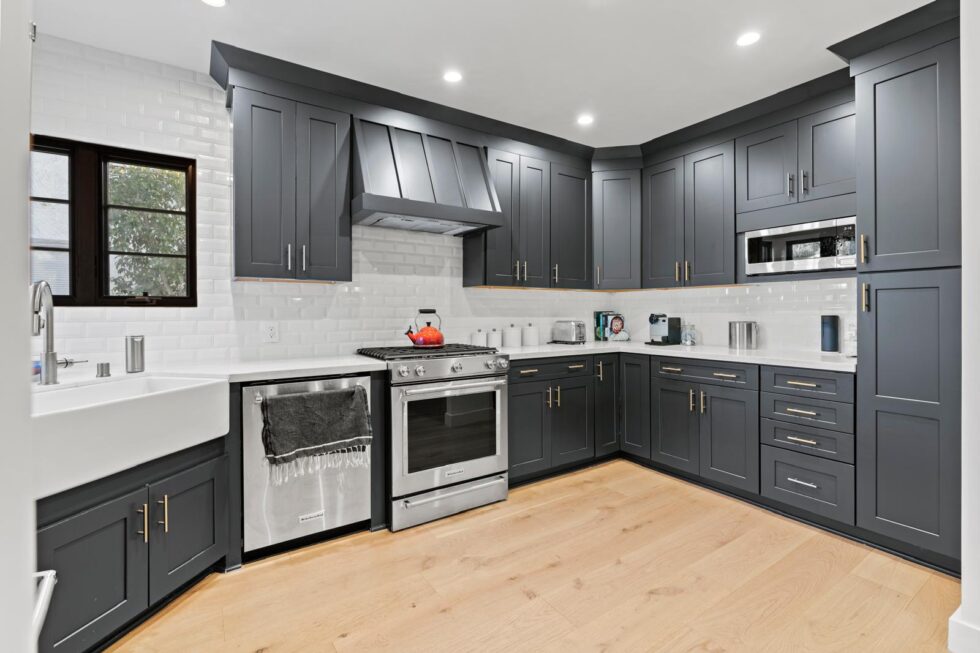Contractor for Kitchen Remodel
A kitchen remodel is one of the most exciting yet challenging home improvement projects a homeowner can undertake. Whether you’re upgrading outdated appliances, improving functionality, or simply aiming for a fresh, modern look, the key to a successful transformation lies in choosing the right contractor. A skilled and reliable contractor not only brings your vision to life but also ensures the project is completed on time, within budget, and up to code.
Why Hiring a Contractor for Kitchen Remodel Matters
While some homeowners may be tempted to take the DIY route or hire the cheapest option available, kitchen remodeling is a complex process that requires expertise in plumbing, electrical work, carpentry, and design. A professional contractor brings years of experience, a trained crew, and the necessary licenses and insurance to protect both the homeowner and the workers. More importantly, a good contractor can navigate unexpected challenges and minimize costly mistakes.
Steps to Finding the Right Contractor for Kitchen Remodel
1. Start With Research
Begin by gathering recommendations from friends, family, neighbors, and online reviews. Websites like Houzz, Angie’s List, and HomeAdvisor offer reviews and ratings for local contractors. Make a shortlist of potential candidates and check each contractor’s portfolio to get a sense of their style and capabilities.
2. Verify Credentials
Ensure your contractor is licensed, bonded, and insured. Licensing confirms that they meet local building codes and regulations, while insurance protects you in case of on-site accidents or damage. Bonding adds another layer of protection by guaranteeing the contractor fulfills their contractual obligations.
3. Check References and Past Work
A reputable contractor should have no problem providing references. Speak with past clients about their experience—were they satisfied with the results? Was the project completed on time and on budget? Was communication clear throughout the process?
Also, ask to see before-and-after photos or even visit a current job site to assess the quality of work firsthand.
4. Request Detailed Estimates
Once you’ve narrowed your list to two or three contractors, request written estimates. These should break down the cost of materials, labor, permits, and any other expenses. Be wary of unusually low bids—it could indicate the use of substandard materials or a lack of experience.
5. Review the Contract Thoroughly
Before any work begins, get everything in writing. A well-written contract should include:
- A clear project timeline
- Payment schedule
- Detailed scope of work
- Change order policy
- Warranty information
- Terms and conditions for dispute resolution
Never sign a contract unless you’re comfortable with all the terms and understand every clause.
Red Flags to Watch Out For Contractor for Kitchen Remodel
While many contractors are honest and professional, there are a few red flags that should raise concern:
- No license or insurance
- High-pressure sales tactics
- Demands for large upfront payments
- Reluctance to provide references
- Unwillingness to sign a detailed contract
If you encounter any of these warning signs, it’s best to walk away and look for someone more trustworthy.
Communication Is Key
Even the most experienced contractor can’t read your mind. Be as clear and specific as possible about your vision, budget, and expectations. Regular check-ins and updates can help keep the project on track and avoid misunderstandings. Make sure you’re available to make timely decisions—whether it’s choosing finishes, approving changes, or addressing issues that may arise during the remodel.
Budget Considerations
A kitchen remodel is a significant investment. According to industry estimates, the average kitchen remodel can cost anywhere from $15,000 to $50,000 or more, depending on the scope and materials used. That’s why it’s crucial to establish a realistic budget early on and discuss it openly with your contractor. Set aside 10–20% of your budget for unexpected expenses. Even with the best planning, surprises like plumbing issues or structural concerns can arise.
Timeline and Planning
Kitchen remodels typically take anywhere from 6 to 12 weeks, depending on the complexity of the project. Your contractor should provide a clear timeline outlining each phase of construction—from demolition to installation to final inspections. Keep in mind that delays can happen due to weather, permitting issues, or material shortages, so build some flexibility into your timeline.
Final Thoughts
Hiring the right contractor can make all the difference between a dream kitchen and a remodeling nightmare. Take your time, do your homework, and trust your instincts. A good contractor will not only deliver high-quality workmanship but will also guide you through the process with professionalism, honesty, and respect for your home.
With careful planning and the right team, your kitchen remodel can be a smooth and rewarding experience that adds both beauty and value to your home.

